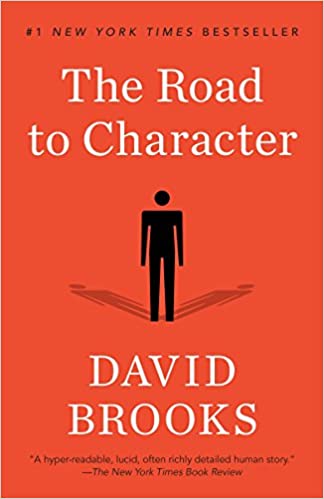Not many people are even familiar with what their core values are.
While it’s most common in young people, many grow old without determining what values they hold closest to their hearts.
We’ll help you define yourself as a person and discuss everything you’re wondering about core values right now.

The road to character
by David brooks
⏱ 15 minutes reading time
🎧 Audio version available
Okay, so why are we even talking about core values? Core values are a description of your character. They define who you are as a person and what you value. Remember that these values hold true no matter what happens, especially during times of stress.
These are the things you never compromise on. Essentially a clear, distinctive line between what you consider right and wrong for yourself.
Some people assume that, since they are not religious or spiritual, core values have no meaning for them. But as we move on in this post, you will find that they not only define you, but also help you make decisions in life. When you know who you are and what is most important for you, making business and domestic decisions will be so much easier.
You won’t have to look back in regret and think: “Damn! That choice separated my family from me. I wish I never made the decision to move to Tokyo.” If this hypothetical person knew where he stood in terms of his core values, he would never have to regret his decisions like this.
We also say that the core values should be questioned every so often. This is very important. You may think you know what your core values are. But there is a good chance you are incorrect. And you only realize this later in life, after the damage has already happened.
So, how do you know what your core values are? What if you have no idea what they are? The short answer is that it’s simple to find out your core values. I’ll walk you through the whole process, so you can get to know yourself better. Remember: the better you know yourself, the better decisions you will be able to make. In the words of Roy Disney, “It’s not hard to make decisions when you know what your values are.”
At this point, you may not even have much clue of what a core value even is, let alone have any awareness of what yours are. A great place to start looking is in a huge list of the basic core values humans have.
I’ll read through some of them right now, so you can get an idea about them. Some common core values are leadership, honesty, courage, happiness, wealth, forgiveness, enjoyment, leisure, struggle, family, faith, and wisdom. There are hundreds more; it’s a long list. It’s quite possible that the list won’t include something that you feel is one of your core values. Once you’ve started looking at the list, hand-picking the values that speak to you will be much easier.
Remember that these are not virtues you aspire to become. These should be the values that literally define you as a person. If you think it’s great to be brave and courageous, but don’t think you’d ever be able to show courage in your life, then that’s definitely not one of your core values.
Anyway, do not select more than 5, and only select those that you truly think define your character. Now, you have a list of probably 5 or more values. You need to ask yourself if you were offered, say, a million dollars, would you compromise on any of these values?
If the answer is yes, then it’s not one of your core values. Also, ask yourself what these values mean to you. For example, you pick happiness, faith, or wisdom. Under what circumstances would you be willing to practice these values of yours? How about unwilling? What would you be willing to compromise to preserve these values? Once you know what these values mean for you, you’ll have a much better idea of where you stand.
Then we have a litmus test. Ask yourself this and answer it honestly. In 25 years, do you see this core value possibly changing? If your answer was yes, it means that this is not one of your core values. Normally, these are only 3 to four at best, because these are values you live up to every moment of your life.
As for why we need to question these core values, that’s easy. We need to be very, very sure that the core values we think define us are actually our core values. For example, you are 22 years old and don’t have a significant other yet. But you’re making money and consider wealth as your core value right now. As you grow, you think this will never change.
However, you get a girlfriend, you get married and one day, you have a family that you love. One day at the office, an opportunity is presented to you: move from the U.S to the U.K for five years and get double the salary. Since you always thought that attaining wealth was most important to you, you accept this proposal.
But one year in, you realize that, although you’re making a lot of money, your life is genuinely less pleasant than it was a year ago. That’s when it hits you: family had become a core value for you ages ago, but you never revisited your values. Of course, this is an oversimplified version to explain how a misjudged core value can result in a bad life decision.
Our lives continuously change. We learn new things every single day and that affects us. We meet new people, have different conversations, perform different tasks, and think back every now and then. Every one of these experiences makes a small but significant impact in changing our perspective permanently.
It is often joked about that people feel they were not the same person as they were yesterday. That is 100% true. You can learn something new every moment of the day if you’re aware of what’s going around you. Why don’t you take a moment and think back to when you were 12 years old? What did you hope to become back then and what other perspectives on life did you hold that aren’t a part of your personality anymore? So, yeah, you will find a lot of difference between the younger you and the current you.
This makes it vitally important for us to regularly reassess on our core values to see if they still hold true. Of course, we should not use that as an excuse to compromise on our core values. Because we could technically and temporarily convince ourselves that whatever we’re compromising simply does not hold true anymore, as we’ve grown into a different person.
But if we’re not honest about that with ourselves, then this will lead to deep-rooted regrets later in life. And nobody wants that, do they? So, make sure to keep re-thinking about things you consider as your core values. Revisiting them does not mean you have to change them.
You just need to think about them as you continue to grow. If you genuinely feel that something on there simply does not resonate with you anymore, then, yeah, it might be the time for an update!
What Is Snapreads?

With the Snapreads app, you get the key insights from the best nonfiction books in minutes, not hours or days. Our experts transform these books into quick, memorable, easy-to-understand insights you can read when you have the time or listen to them on the go.
